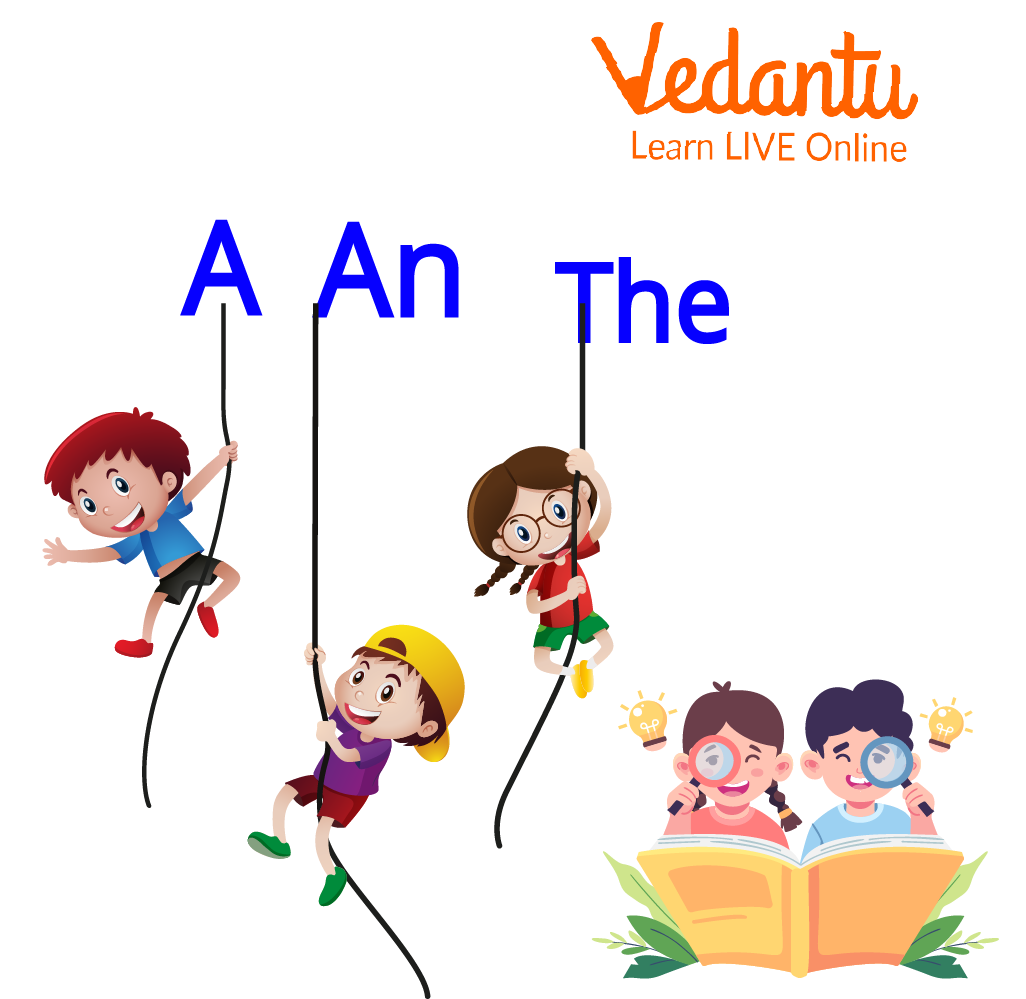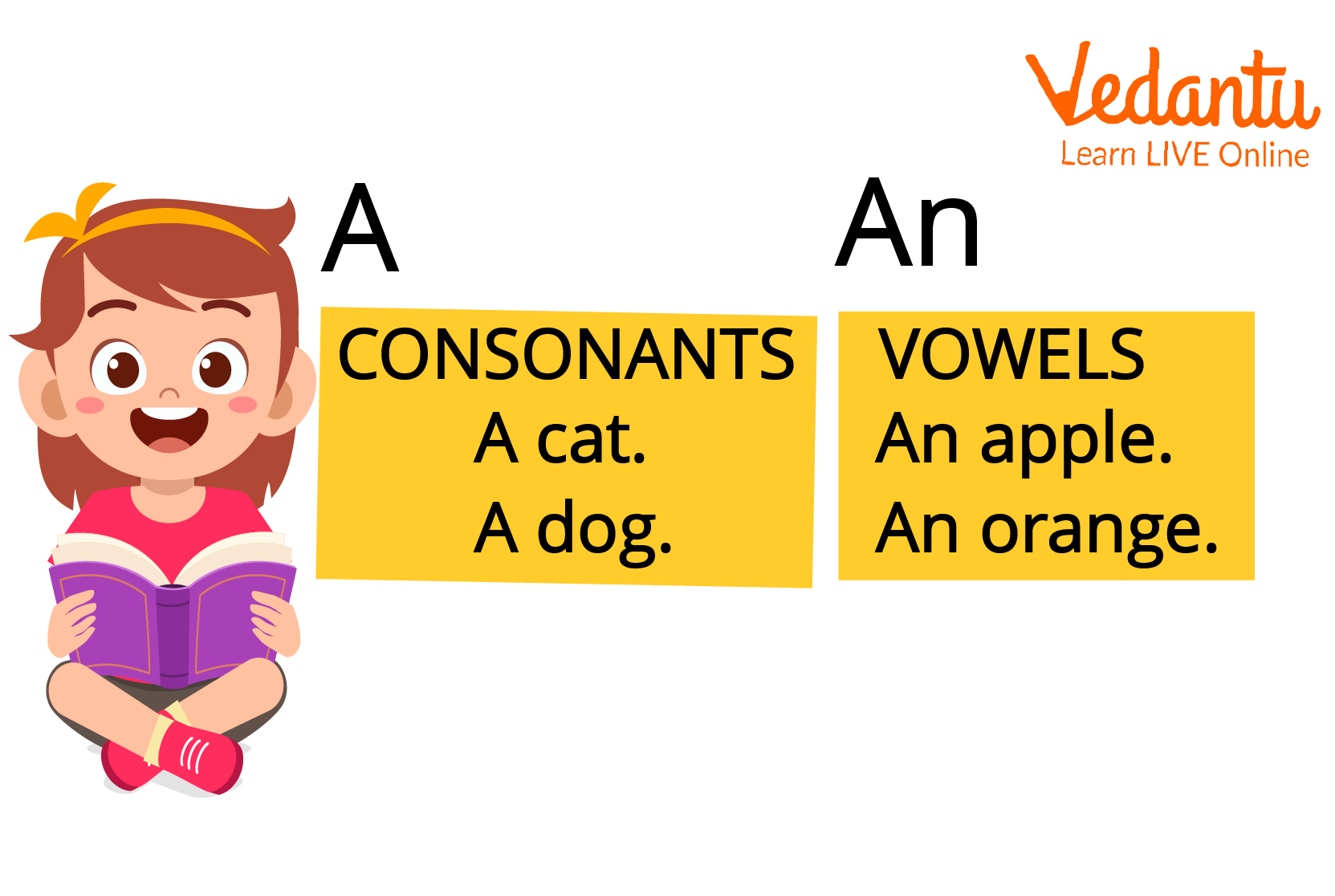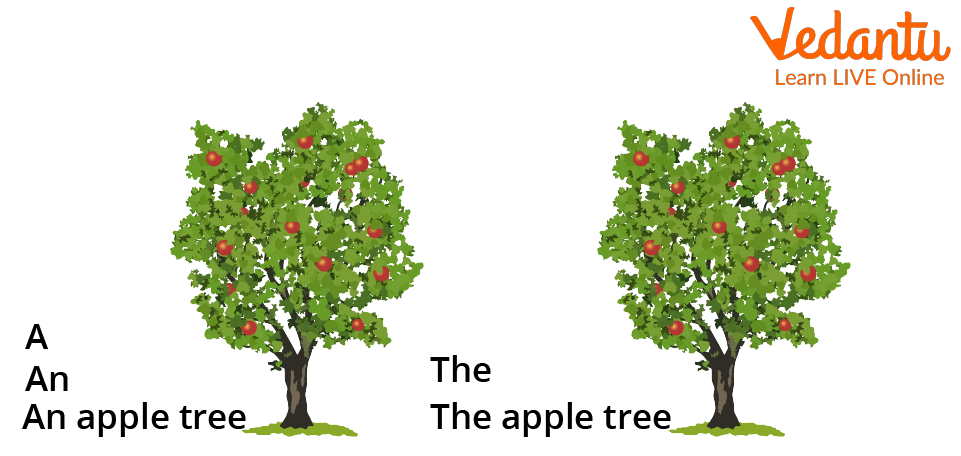Articles in English Grammar for Class 7: Key Concepts, Syllabus & Practice Tips
FAQs on Comprehensive Guide to Class 7 English Grammar: Articles (2025-26)
1. What are the most frequently asked types of questions on Articles for the Class 7 English exam for the 2025-26 session?
For the 2025-26 session, you can expect questions on Articles to appear in various formats that test your understanding. The most important types include:
- Fill in the blanks: You will be asked to insert 'a', 'an', 'the', or leave the space blank where no article is needed (zero article).
- Error Correction: These questions require you to identify an incorrect article in a sentence and rewrite it correctly.
- Multiple Choice Questions (MCQs): You will have to choose the most appropriate article from a list of options to complete a sentence.
- Sentence Completion: You may be asked to complete sentences where the correct use of an article is crucial for the sentence's meaning.
2. What are the most important rules for using the definite article 'the' that are often tested in exams?
To score well, it's important to master these key rules for using the definite article 'the':
- Before nouns that are unique, like The Sun, The Moon, or The Earth.
- Before the names of mountain ranges (The Himalayas), rivers (The Ganga), oceans (The Indian Ocean), and deserts (The Thar Desert).
- With superlative adjectives, such as the best player or the tallest building.
- Before holy or famous books (The Ramayana, The Quran) and well-known newspapers (The Hindu).
- When referring to a specific noun that has already been mentioned. For example: I saw a bird. The bird was singing.
3. Why is 'an' used before words like 'hour' or 'honest', even though they start with the consonant 'h'?
This is a crucial concept for exams. The choice between 'a' and 'an' depends entirely on the initial sound of a word, not the letter itself. In words like 'hour', 'heir', or 'honest', the 'h' is silent. The word begins with a vowel sound (like 'our' or 'onest'). Therefore, we use 'an' (an hour, an honest person) to follow the fundamental rule of English grammar, which is based on pronunciation.
4. What are some important cases where no article (Zero Article) should be used?
Omission of articles is a frequent topic in exams. It's important to remember not to use any article in these common situations:
- Before proper nouns like names of people (Ria, not The Ria), most countries (India, not The India), and single mountains (Mount Everest, not The Mount Everest).
- Before names of languages (English, Hindi) and academic subjects (Mathematics, Science).
- Before abstract nouns when used in a general sense, for example, 'Honesty is the best policy.'
- Before the names of meals, such as 'I had breakfast at 8 AM.'
5. How does using 'a' versus 'the' before a noun change the meaning of a sentence?
Understanding the difference between 'a' and 'the' is a higher-order skill tested in exams. Using the wrong article can completely alter the meaning. 'A' or 'an' is used to introduce a noun for the first time or refer to any general member of a group. In contrast, 'the' refers to a specific, unique, or previously mentioned noun. For instance:
- "I need a book." (This means any book will suffice).
- "I need the book." (This means a specific book, likely one known to both the speaker and the listener).
6. Why is it a common mistake to use 'an' before words like 'university' or 'European'?
This is a classic trap in grammar questions. Although 'university' and 'European' begin with the vowels 'u' and 'e', their initial sound is a consonant 'y' sound (like 'yoo-niversity' or 'yoo-ropean'). The rule for using 'a' or 'an' is based on the initial sound, not the first letter. Because these words start with a consonant sound, the correct article is 'a'. Always saying the word aloud helps determine whether it begins with a vowel sound (like apple, ink) or a consonant sound.
7. How can mastering the 'zero article' concept improve my marks in the grammar section?
Mastering the 'zero article' (where no article is needed) is an excellent strategy to improve your score. Examiners often include questions where the correct answer is to use no article at all, which can be a tricky option. By confidently knowing when not to use an article—such as with general abstract nouns, names of meals, languages, and most proper nouns—you can avoid common mistakes and score marks that other students might lose. It shows a deeper understanding of grammar rules beyond just 'a', 'an', and 'the'.



























